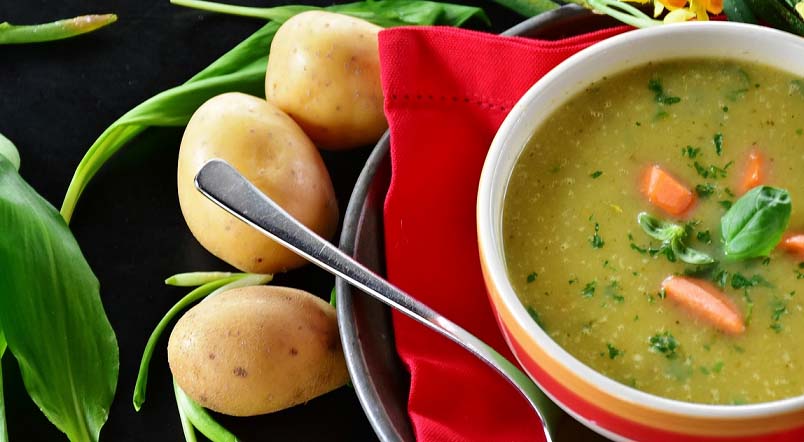
Depending on the type of vegetable and the intended result, there are various ways to prepare root vegetables (such as potatoes, carrots, beets, turnips, sweet potatoes, parsnips, radishes, ginger etc.). Popular techniques include:
- Roasting: When roasting, cut the vegetables into uniform pieces and sprinkle with salt, pepper, oil and garlic powder. Roast for 20 to 30 minutes at 425 degrees Fahrenheit or until cooked through and browned.
- Boiling: Put the vegetables in a pot of boiling water, cover and simmer for until they are soft. For vegetables that will be mash or puree this technique works well.
- Steaming: Boiling water is used to steam vegetables in a steamer basket until they are fork-tender. The nutrition and flavour of the vegetables are preserved with this technique.
- Baking: Cut vegetables into chunks, stir with oil, salt and pepper and bake for 45 to 60 minutes or until soft in a covered dish at 375 degrees Fahrenheit.
- Grilling: Slice the veggies into chunks, sprinkle with the oil, salt and pepper and grill for 8 to 10 minutes or until cook over medium-high heat.
- Sautéing: Chop veggies into small pieces and cook them in butter, oil or a mix of the two in a skillet until they are soft.
- Microwave: Put the vegetables in a dish that can be used in the microwave, add a little water and cover. Cook until tender for 3–5 minutes on high.
You should keep in mind that the cooking time will vary based on the size of the veggies so check them periodically and use a fork to check if they are done.
Some Safety Measures to take
There are a few measures to consider when cooking root vegetables to guarantee that they are prepared correctly and safely:
- Keep an eye on the cooking time: Depending on their size, root vegetables can cook at varying rates so it’s vital to monitor the cooking time and check them periodically.
- Use a thermometer to check for doneness: Sweet potatoes are one example of a root vegetable that must be cooked at a specified temperature.
- Add salt at the end of cooking: Since salt can make vegetables mushy by removing moisture it is better to add it toward the end of cooking or after the veggies have finished cooking.
- Prevent overcooking: Root vegetables can become mushy and lose flavour if they are overcooked, so be sure to check them often and take them off the heat when they are soft.
- Prevent cross-contamination: To prevent cross-contamination with other foods, wash your hands, cutlery and cutting boards both before and after handling raw root vegetables.
- Take care around heat: When grilling or roasting, watch the vegetables carefully to prevent burning them. Take extra care when handling hot pots or plates.
- Be aware of allergies: Some root vegetables, such as salsify, Jerusalem artichokes or jicama, are sometimes confuse with other vegetables and might result in allergic reactions in some people. Be sure to correctly identify and handle these vegetables.









